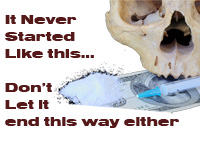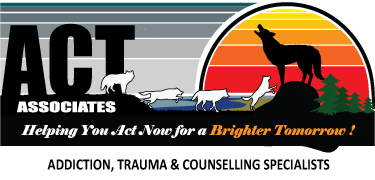Addiction Counselling
 It all starts out innocently enough, wanting things to be different. Perhaps it’s the better car, the bigger house, the new relationship, new job or just for things to not be so stressful. Everything keeps going wrong no matter what you try. Nothing seems to be working out for you. All you want is a little relief from the daily grind. That’s when you try it. Perhaps it’s cigarettes, for others you’ve already moved on to alcohol, marijuana, street or prescription drugs. No one intends to become an addict. That is definitely not in the plan. Unfortunately though, that is exactly what happens to so many people.
It all starts out innocently enough, wanting things to be different. Perhaps it’s the better car, the bigger house, the new relationship, new job or just for things to not be so stressful. Everything keeps going wrong no matter what you try. Nothing seems to be working out for you. All you want is a little relief from the daily grind. That’s when you try it. Perhaps it’s cigarettes, for others you’ve already moved on to alcohol, marijuana, street or prescription drugs. No one intends to become an addict. That is definitely not in the plan. Unfortunately though, that is exactly what happens to so many people.
Addictions occur in so many ways. For some it may be alcohol that is problematic. For others it may be marijuana. But still for others it could be a behaviour, like pornography or sexually acting out that is destroying your plan. Regardless of what the substance or behaviour is that is problematic for you, it’s important for you to know that life does not have to be this way. You have the ability to make changes that will change the course of your life.
Learn more about addiction counselling below
![]()
Understanding addictions can help you identify areas where you or someone you know may need help. Listed below are some definitions and facts related to various addictions. Need help? Want more information? Don’t hesitate to call, we are here to help you achieve a brighter tomorrow.
How does someone become addicted to substances?
Addiction is a three-part process. To begin with, individuals are exposed to the substance and find it pleasurable. There is a reward for using the substance and it quickly becomes the focal point of their life. The second phase is compulsion. The individual begins spending an increased amount of time, energy and money on the substance and they continue using in spite of the consequences. Even if they experience a loss of family, friends, work, health, financial stability or physical health, they still continue to use. The addiction is so strong that “threats” do not “make them” stop. The third phase is known as loss of control. Now, the individual is searching for a way to avoid withdrawal. Consequences have no impact and obtaining and using the substance is their number one priority.
When I hear people talk about “gateway drugs”, what are they talking about?
A gateway drug is one substance that paves the way for the user to begin using a “harder” drug. These drugs are mind altering in nature and allow the user to move on to stronger or harder drugs. People generally do not wake up one day and decide to try cocaine or bath salts if they have not already dabbled in some other substance.
What is a psychoactive drug?
A psychoactive drug is any substance that can alter your moods, feelings or perceptions. A psychoactive drug is not always an illegal substance. Coffee, tea, chocolate, tobacco and alcohol all contain mood-altering components; yet, all are legal substances.
What are some ways substances get into the body? Which the most addictive?
When we are looking at the process of addiction and how someone becomes addicted to something there are primarily four ways for substances to get into the body: ingesting or swallowing something; injecting with a needle; inhalation or smoking and absorption through the skin. Inhalation is the most addictive way for a substance to get into the body, with injection being second, third is ingesting or swallowing it and fourth is absorption through the skin.
What is meant by Dependence, Tolerance, and Cross-tolerance?
Dependence
Dependence means that the body has become reliant on the drug or substance. Dependence can happen in two ways. One is physical and the other is psychological. Physical dependence means that the body believes it must have the substance or it will begin to go into withdrawal because the body now relies on the substance. Psychological dependence means that the user has become addicted to the “affect” that the substance provides. So the person has become addicted to the way they feel when they are using. So, someone who does not want to deal with situations in their life might become addicted to a substance that will make them go to sleep even though the substance is not addictive itself. The person then comes to depend on the fact that they do not have to deal with situations around them if they are asleep. Another term for dependence is habituation. In other words, taking or using the substance becomes a habit.
Tolerance
Tolerance occurs when someone continues taking the same amount of a substance but the substance begins, over time, to have a decreased effect. This is also known as having an addiction.
Cross-tolerance
Cross-tolerance means that the use of one substance may cross over and have an impact on another substance. It is not uncommon for individuals who consume great quantities of alcohol to find that analgesics are not helpful for pain control, or that they require more and more of the analgesic in order to lessen their experience of pain.
What is the difference between misuse and abuse of a drug?
Misuse of a drug is generally understood to mean that someone is confused about the directions they were given by their doctor or pharmacist, they have mixed it with other over the counter medications, or they have taken the medication for an unintended purpose.
Abuse on the other hand is when a person purposely uses a legal or illegal drug in a way that becomes detrimental to their health and well-being.
When people talk about stimulants, what are they?
Stimulants are substances that are used to get the body going. They are also known as “uppers”. They will cause an increase in your heart rate, increase in blood pressure and an increase in the rate of brain function. Caffeine, amphetamines and cocaine are examples of stimulants. They easily produce psychological dependence and tolerance to the substance develops quickly.
What are depressants?
Depressants are substances that slow the central nervous system (so that’s your brain and spinal cord) down. They have a sedative effect. Substances like barbiturates, alcohol, tranquilizers and marijuana are all examples of a depressant that produces tolerance as well as psychological and physical dependence.
What is a hallucinogen?
Hallucinogens are substances that produce hallucinations or distortions of reality. These hallucinations can be audio, visual or both. These substances, like mushrooms, tend to create bad experiences, generally referred to as “bummers” which are unpleasant and frightening experiences. They also tend to produce psychological dependence. Sometimes, users will report experiencing an unusual paring of sensory experiences such as being able to “hear a colour”, “smell music”, or “touching a taste”. This is what is referred to synesthesia. Examples of hallucinogens include LSD (lysergic acid diethylamide), designer drugs such as DOM, MDA, MDMA (ecstasy) and Phencyclidine or Angel Dust.
What is marijuana?
Marijuana is produced from the leaves and stems of the cannabis plant, which are dried and crushed and then smoked by the user. Hashish or “hash” is produced from the flowers and tend to be smoked in a pipe. The active ingredient THC, also known as tetrahydrocannabinol, is a fat-soluble substance that remains in the body for lengthy periods of time. Use of marijuana has been known to produce a-motivational syndrome in users.
However, there are medicinal uses of marijuana that includes relieving nausea caused by chemotherapy, increasing the appetite in AIDS patients, decreasing eye pressure and pain in glaucoma patients, as well as many other illnesses.
What are narcotics?
Narcotics are the most dependence producing substances, which are generally used to reduce pain and induce sleep. There are 3 subgroups: natural, quasi-synthetic, and synthetic.
Natural narcotics would be substances such as opium or morphine. Quasi-synthetic narcotics would be substances like heroin and many other analgesics. Synthetic narcotics would include substances like Demerol, darvon, methadone, oxycodone which is also known as Hill Billy heroin.
![]()
Are you struggling with an addiction?
Addictions can be so overwhelming. If that’s how you are feeling right now, I want you to know that you are not alone. Almost all people have an addiction of one form or another. The difference though between your addiction and their addiction is probably the degree of harm your “substance of choice or behaviour” is causing you. For some people it’s physically harming their body, for others it’s tearing their relationships apart, and still for others it’s destroying them emotionally. However, it doesn’t have to be this way. There is help and we’re here to help.
Regardless of what your addiction is, in order to change, you are going to need to do a few things that we can help you with, in order for you to be successful. So, here’s how we can help:
- We can help you develop a plan if you are going to change the course of your life.
- You will need supports and people along the way. We can show you how to get those supports from appropriate and healthy people.
- You will need to learn to be accountable to yourself and others.
- You may need to learn how to reduce the barriers to your success so you can change the present course you are on.
- You will need to learn new coping skills for difficult times.
- Most people require help learning to recognize their triggers. People, places and things tend to be the triggers that lead someone towards relapse, even if they have been successful for a long period of time.
Addiction treatment and recovery can take many routes. We are a community based counselling centre that offers outpatient treatment for individuals who wish to continue working or going to school and not have their lives put “on hold” while changing the course of their life.
Are you tired of the daily routines that entice you to use and get you hooked? You can change this and we’ll join you on this journey. Give us a call or drop us a line.
If you have questions, or we can be a resource for you, please do not hesitate to call. We would be pleased to assist.
